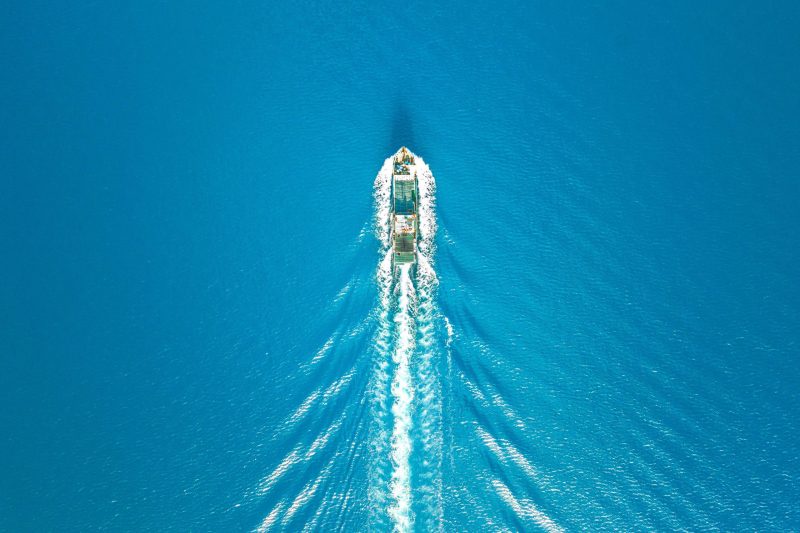First introduced in 2017, Thai Union's Fishing Vessel Improvement Program and Vessel Code of Conduct address the unique set of working conditions on fishing vessels. The Vessel Code of Conduct is an extension of the Thai Union Business Labor and Ethics Code of Conduct, which are both designed to reinforce a culture of integrity and are aligned with the United Nations Global Compact principles of basic responsibilities to people and upholding their rights. Thai Union's suppliers are required to sign the new Vessel Code of Conduct to do business with the company, ensuring it applies to all fishing vessels in the company's supply chain.
Thai Union has collaborated with the CEO-led Consumer Goods Forum (CGF) to align the Vessel Code of Conduct and its Fisher Work and Welfare program as closely as possible with the At-Sea Operations Framework of the Sustainable Supply Chain Initiative (SSCI). This will transfer expectations of standards on board vessels from the retail industry to Thai Union as a seafood processor and buyer of wild caught seafood - ultimately this aims to secure consumer trust and drive positive change. The CGF and Thai Union completed a project commissioning an independent expert to arrive at a point where the content and operational aspects of Thai Union's Fisher Work and Welfare program are almost totally aligned with that of the SSCI at-sea operations criteria and audit standards. As Thai Union is not a third-party certification program, a review of the governance systems required to operate as a standard holder were excluded from the review.
In its third and latest iteration, the Vessel Code of Conduct has been revised in the following way:
- Incorporates modified language, interpretation of clauses, and particular additions to be in line with the SSCI at-sea operations requirements.
- Further developments of the Fisher Work and Welfare Program to include processes and procedures for the selection, monitoring, and review of social auditors.
- Formal processes for the tracking of improvements, and general audit management.
- Handbook guidance for auditors for each clause to align methodologies and interpretation of the Vessel Code of Conduct.
This project underscores the value of collaboration between private companies and industry initiatives like the CGF's SSCI. While not eligible for SSCI recognition, Thai Union has proven how the SSCI Benchmarking tool can be used by companies taking due diligence seriously to align with industry standards, fostering a commitment to continuous improvement.
As a result of the project with CGF, the third version of the Vessel Code of Conduct is verified by an independent SSCI benchmark leader to be fully compliant with the at sea operations criteria, apart from the inclusion of insurance for fishers. This was not added because it was assessed to require additional research which will be done by Thai Union. "Our latest Vessel Code of Conduct will help clarify company expectations relating to labor, ethical conditions and monitoring on board the fishing vessels that we buy seafood from, and it will drive further value to the sector by engaging suppliers on a journey of improvement," said Adam Brennan, Chief Sustainability Officer at Thai Union Group.
The Vessel Code of Conduct includes a commitment for suppliers to develop a Vessel Improvement Program to meet the clauses and to address any areas where improvement is identified to be needed to meet the Vessel Code of Conduct. Additionally, this provides suppliers with the ability to increase transparency, demonstrate accountability as well as to remedy any issues.
"We want to continue being a leading agent of positive change on the vessels we source from. We will continue to do our part to ensure workers are provided safe, legal, and decent employment," said Tony Lazazzara, Global Director, Group Fish Procurement. "This includes the enforcement of our Business Ethics and Labor Code of Conduct, and our updated Vessel Code of Conduct. If suppliers do not work to meet these standards, then we will stop doing business with them and terminate their contract."
Thai Union has been guided by SeaChange(R), its global sustainability strategy. Launched in 2016 and refreshed in 2023 with new commitments and goals through to 2030, SeaChange(R) has been central to Thai Union's journey, embedding sustainability into every aspect of its operations and setting ambitious targets for the future through 11 interconnected goals. Thai Union is committed to continuous improvement and leading the way toward a more sustainable seafood industry. SeaChange(R) 2030 will guide the Company in this journey, ensuring that it contributes to a healthier planet, leaving a positive legacy for generations to come.
SeaChange(R) 2030's goals include a 42 percent reduction to Scope 1, 2 and 3 greenhouse gas emissions by 2030 and net zero by 2050; contributing THB 250 million (more than USD 7 million) toward the protection and restoration of critical ecosystems; the implementation of zero water discharge, zero waste to landfill and zero food loss at its five key global facilities; ensuring 100 percent of Thai Union's shrimp is produced minimizing ecosystem impact, extending their responsible wild-caught sourcing program to all key species and providing a safe, equitable, and decent workplace, for which the Vessel Code of Conduct is a crucial vehicle.
Source: Thai Union Group
